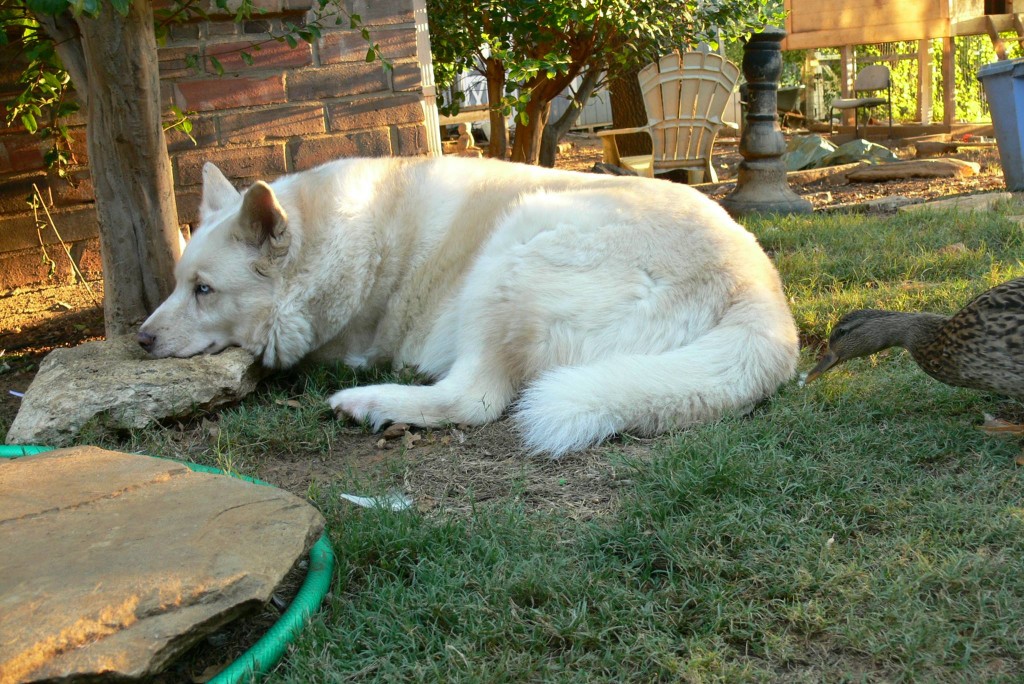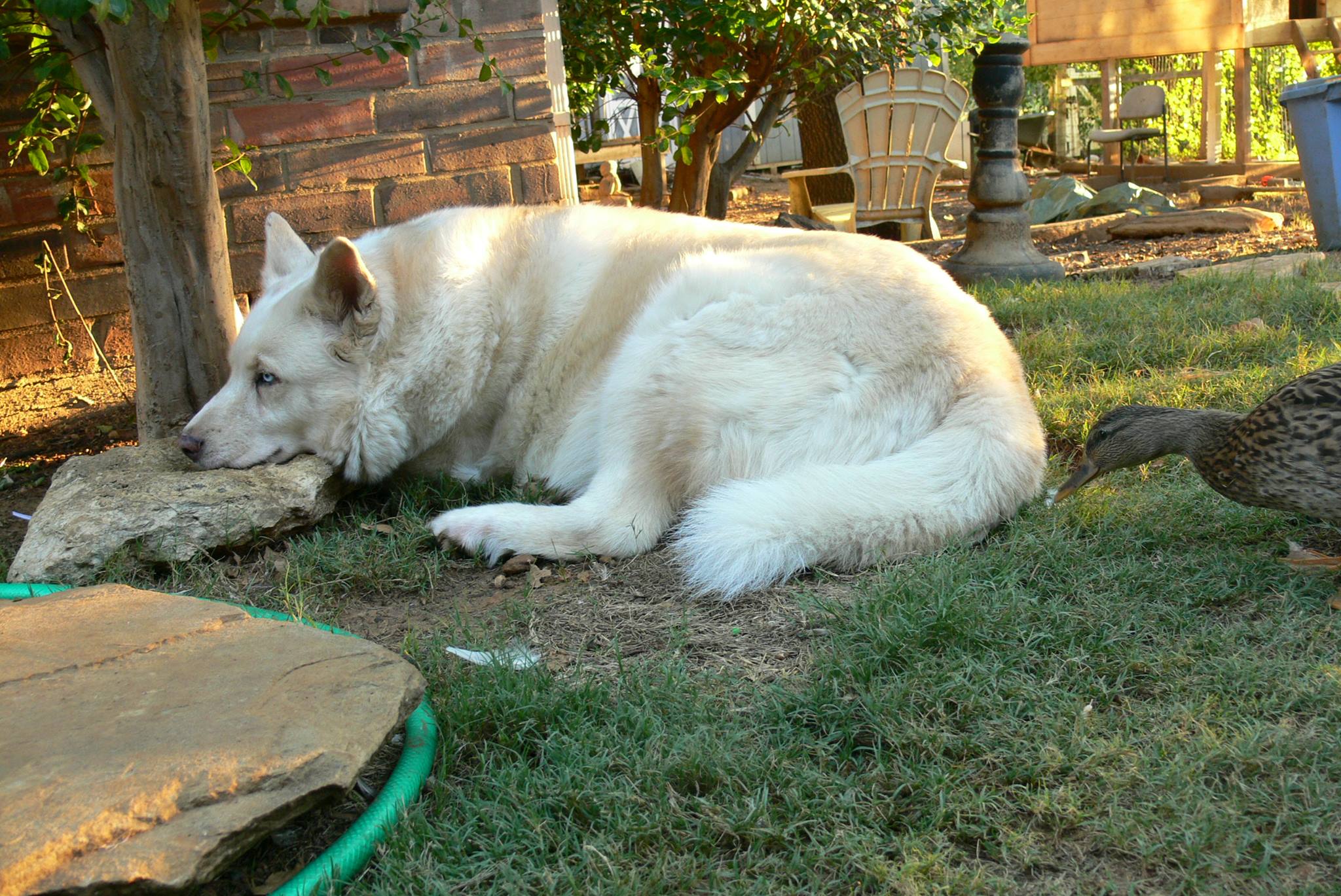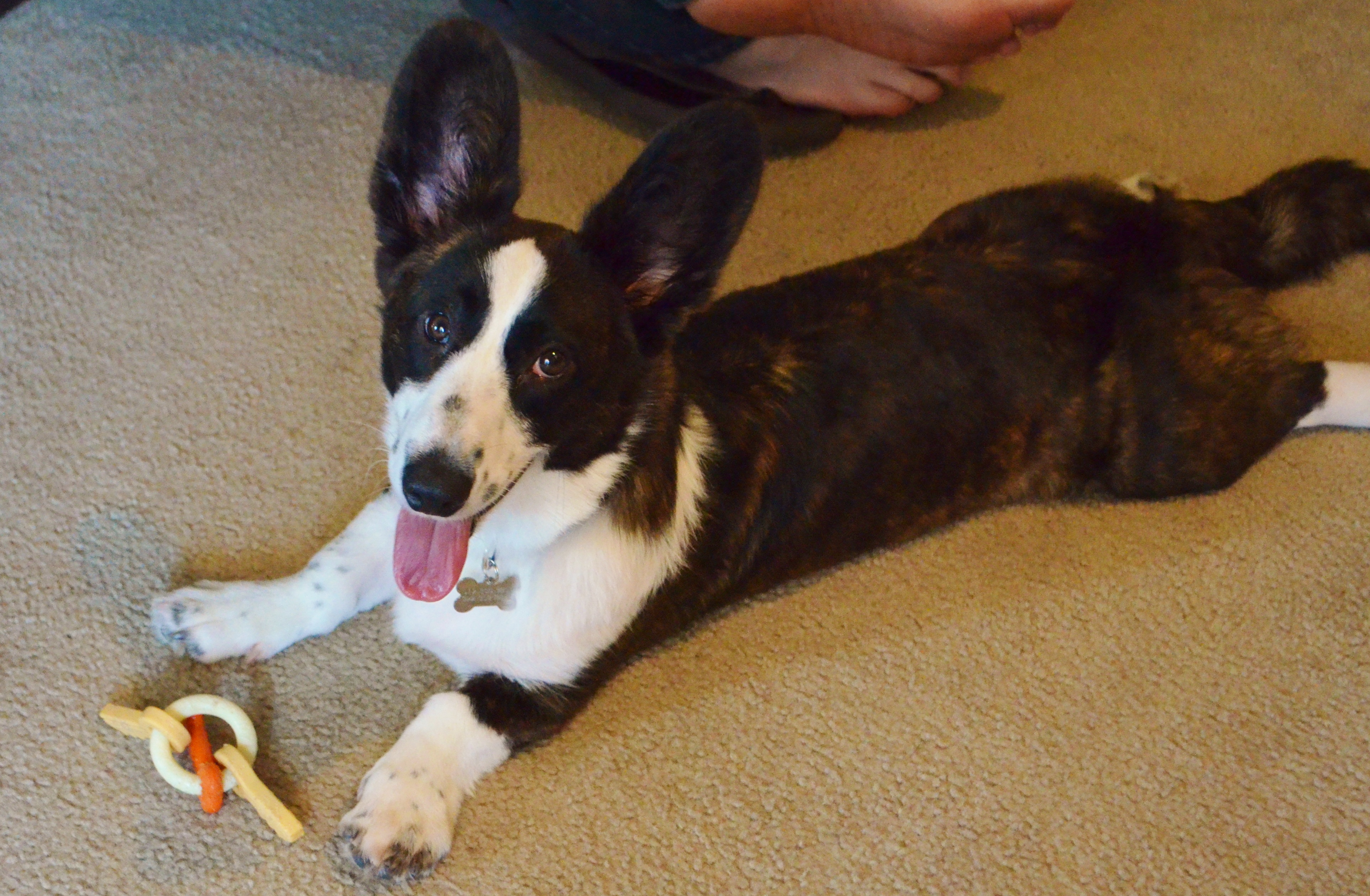A friend of mine shared her success on social media and I got her permission to share her words with you! Special thank you to Ms. Wulf for this. I believe showing off what force-free training can do is the best way to promote positive training methods. The follow is Ms. Wulf’s words about her training with her dog, Lobo.

Lobo and Pyrrhos
The Journey
I started out with a physical barrier between him and Pyrrhos when she was still a duckling. I sat out of the way and waited until Lobo voluntarily turned his head (even if it was just to scratch his back or something). I especially clicked and treated every single time Pyrrhos would move or cheep, and jackpotted every time he turned away when she made the noise (so I was essentially almost making the peeping a cue for turning away).
Here is his response to the ducks in the beginning:
When he was successful with that (only a few sessions), I took Pyrrhos out and out set her on the far side of the bed, with Lobo still on the floor, and me and a chair still separating them. He could see her, hear her, but there was absolutely no way he was going to be able to get her. I followed the same procedure as above, clicking and treating every time he turned away, jackpotting when he did so when she made noise or moved.
Here we are practicing in the room:
Gradually, I lessened the space and barriers, as well as bringing them outside. When we were outside, I would keep the gate closed, c/t every time he looked away. By this time, I had the other four, so it was REALLY difficult for Lobo. To be honest, I think I could have gotten much faster results if I would have introduced more ducklings at a more gradual pace instead of one, then suddenly five.
Then, when I felt he was doing well, I’d bring him in on a leash. I had actually thought this would be where I would stop, but by this time, Lobo was doing so well at ignoring them, that I eventually started bringing him in off-leash. The key is never letting him focus on them, but to be honest, I have yet to have that issue. Actually, he’s only interested in them now because he knows we feed them, and he tries to steal their food (to be fair, they try to steal his food, too, lolol).
Reflections: Looking Back
I would DEFINITELY take my time. I did honestly rush things, and there were many occasions when Lobo was definitely over-threshold and way too stressed. I was only able to do one short session a day. Anymore was too much for him. Ideal times were in the morning, but feeding didn’t affect anything(surprisingly). For a dog that’s healthy and not overweight, I would suggest using something SUUUUUUUUUPER high value, whether that’s the nastiest food you could think of, or a toy. For Lobo, I had no choice but to use green beans. I also feel that I may have let him off leash too early, because I did have to constantly call him back. I also would have practiced OUTSIDE of the duck run, because now I’m having issues keeping him out of the duck run, lol.
I think I would have started with something he could just smell, or videos on the computer that he could hear. I think that would have been better for us and would have shortened the time. In total, I believe we had 10-15 “formal” training sessions, but in between those, I would still heavily verbally praise him any time he did good with the ducks and I would mark with the verbal marker. So really, we were training virtually all day, but the stressful sessions were kept to 3-5mins and only once a day.
The reason I focused so heavily on teaching him to look away, is because Lobo is a very visual dog, and he IS a hunter. He has successfully killed countless birds, rabbits, even moles. To be totally honest, I think the only reason he’s so good now, is because of his breed (many Akita owners report that their Akitas do not mess with the family pet; almost as if they really do understand what is “family” and what is “food”). I believe his age, weight, and illness also played a factor.
Here’s a video of session six. I lost count after this session, though, lol. After this session is when we started practicing outside.
Additional Notes: He’s Not an Easy Dog
Before I crossed over, I used a well-fitted prong for Lobo and he dragged me across the road because he saw a cat. He’s also the type who ignores any type of pain when he’s focused, and, although he’s sweet any other time, didn’t give a rat’s behind if I was injured while trying to keep him from going after a prey animal. I had to give up my ferret because he nearly knocked me over trying to get at her. ):
Success: Peace Between Dog and Duck
Lobo is an Akita/Husky mix and has a massive prey drive, but we’ve worked hard (using clicker training without using physical or verbal corrections) to get him to see the ducks as family, not food.
I’m happy to report that after 10-15 sessions, I believe we’ve achieved that goal! (: Pyrrhos feels completely comfortable coming up and nomming on some of his tail fur(don’t worry, she doesn’t bite hard enough to hurt and she doesn’t pull hair/fur). All Lobo did was lift his head and look at her, then sighed and laid his head back down – pretty much exactly what he does when I’m being annoying.
(In the following video, Lobo shows his ability to relax around the ducks.)


